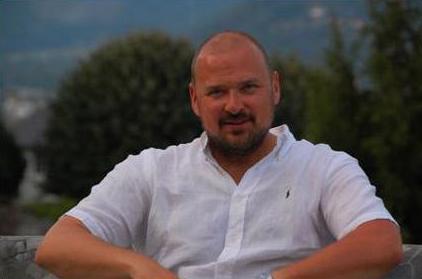
Rhodes University is pleased to announce the appointment of Professor Oleg Smirnov who will assume the new prestigious SKA (Square Kilometre Array) Chair in Radio Astronomy Techniques & Technologies at the University.
Prof Smirnov was previously at the Netherlands Institute for Radio Astronomy (Netherlands) where he worked as a scientific software developer, software architect and researcher.
His research interests span many areas including the development of new radio interferometric techniques and calibration methods, development of the MeqTrees system for simulation and calibration of radio interferometers (http://www.astron.nl/meqwiki) as well as ionospheric modelling and flagging tools.
Prof Smirnov will divide his time between the SKA Office in Cape Town and the Department of Physics and Electronics at Rhodes.
Rhodes was recently allocated five of the 60 South Africa Research Chairs awarded this year, or 8.3%, despite being the smallest university that makes up only 0.8% of South Africa’s university students and 1.9% of all full-time academic staff.
The five new chairs were awarded in ‘Intellectualisation of African Languages, Multilingualism and Education’; ‘Insects in Sustainable Agricultural Ecosystems’; ‘Interdisciplinary Science in Land and Natural Resource Use for Sustainable Livelihoods’; ‘Critical Studies in Sexualities and Reproduction: Human and Social Dynamics’ and ‘Marine Natural Products Research.’
The five new chairs bring the total number of SARChI chairs held by Rhodes to10. These include chairs in areas such as Medicinal Chemistry and Nanotechnology (Prof Tebello Nyokong); Marine Ecosystems (Prof Christopher McQuaid); Mathematics Education (Prof Marc Schafer); Numeracy (Prof Mellony Graven) and the SKA chair (Prof Smirnov).
The SARChI programme is a national knowledge and human development intervention, led by the Department of Science and Technology and managed by the National Research Foundation.
SARChI Research Chairs are tenable for five years and renewable for two further five-year periods, giving a total life span of 15 years. Eligibility for renewal is based on performance.
The funding per chair is R2.5 million per annum, and is intended to cover salaries, postdoctoral fellowships, postgraduate student bursaries, research operating costs, and equipment necessary for the work the Chair.
The programme was established in 2006 to strengthen scientific research leadership and capacity in South African universities. It aims to create a critical mass of world-class scholars who will train future generations of scholars and graduates to support a South African knowledge-based economy.
